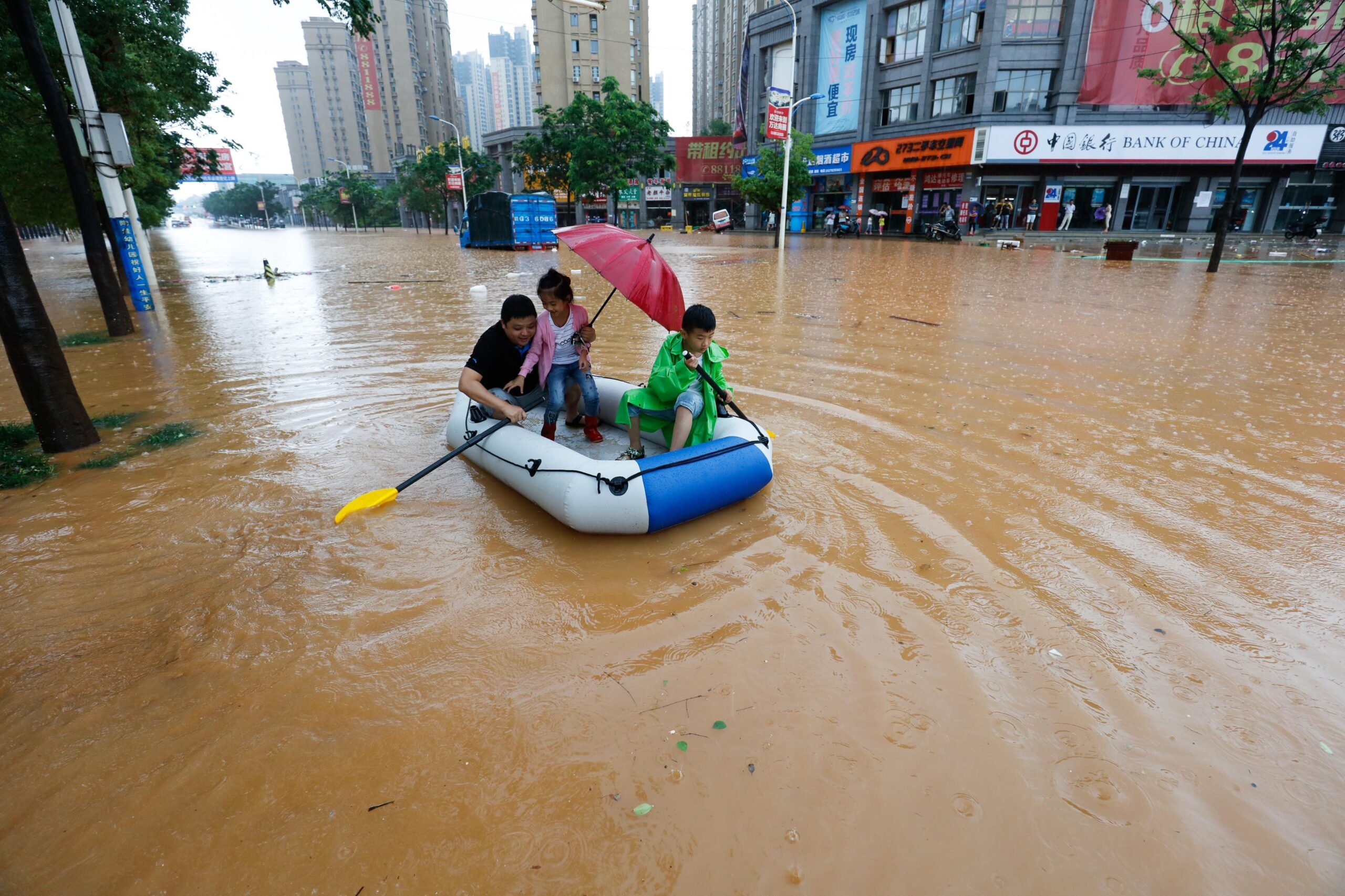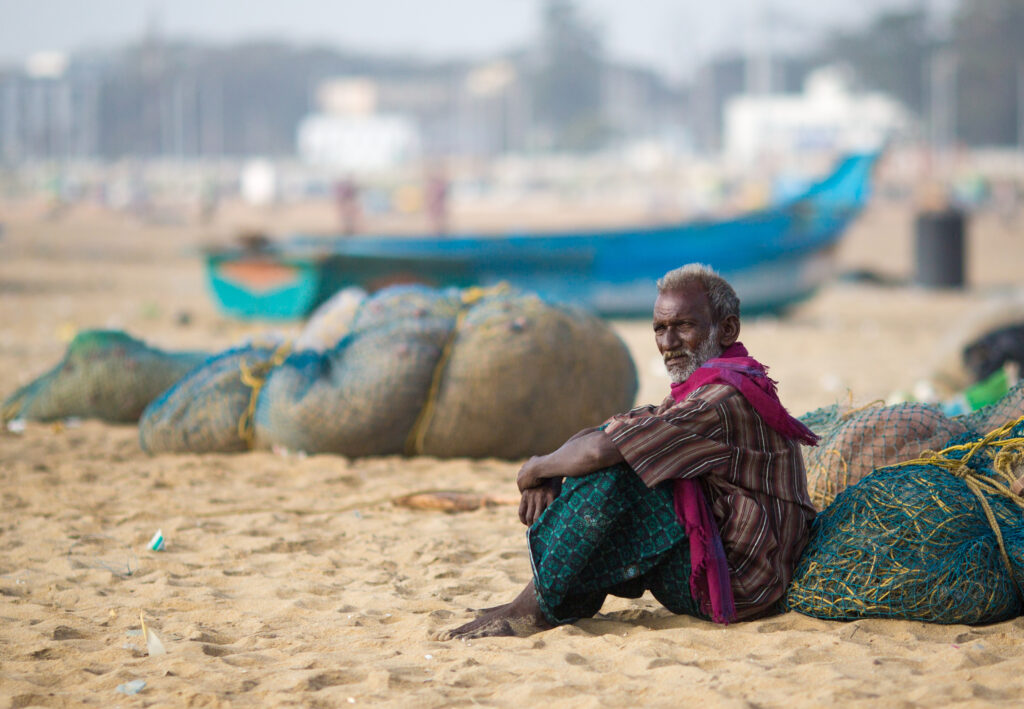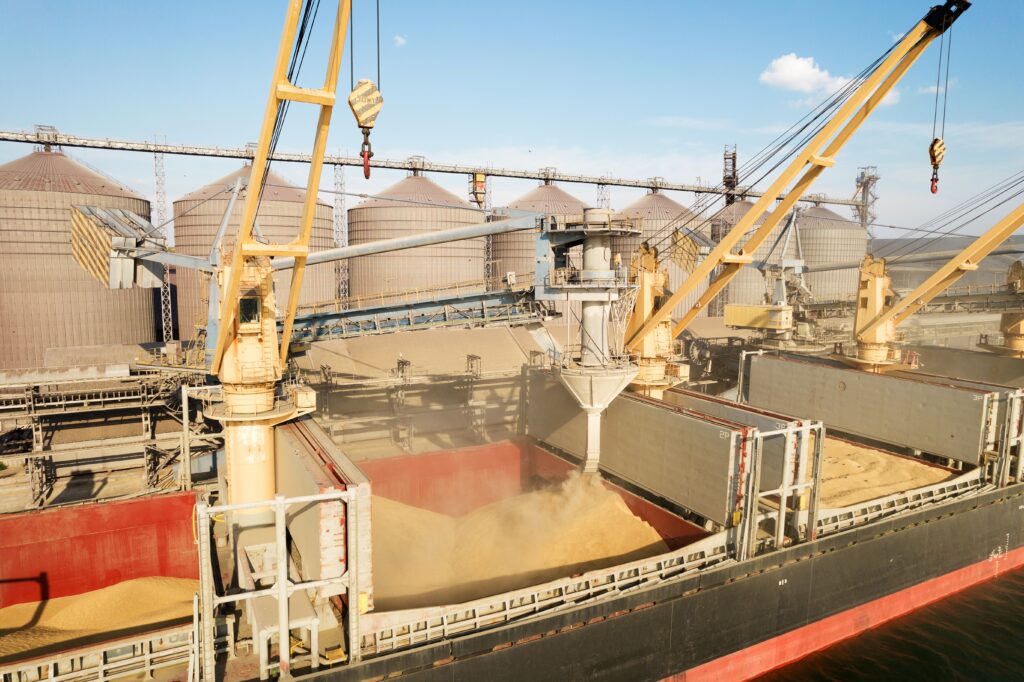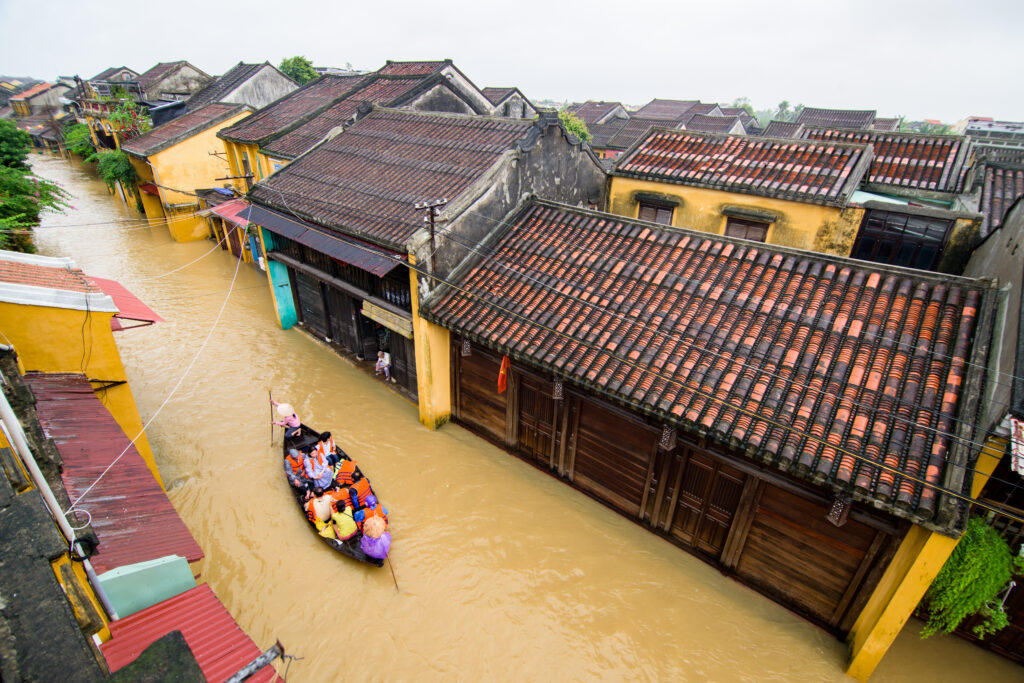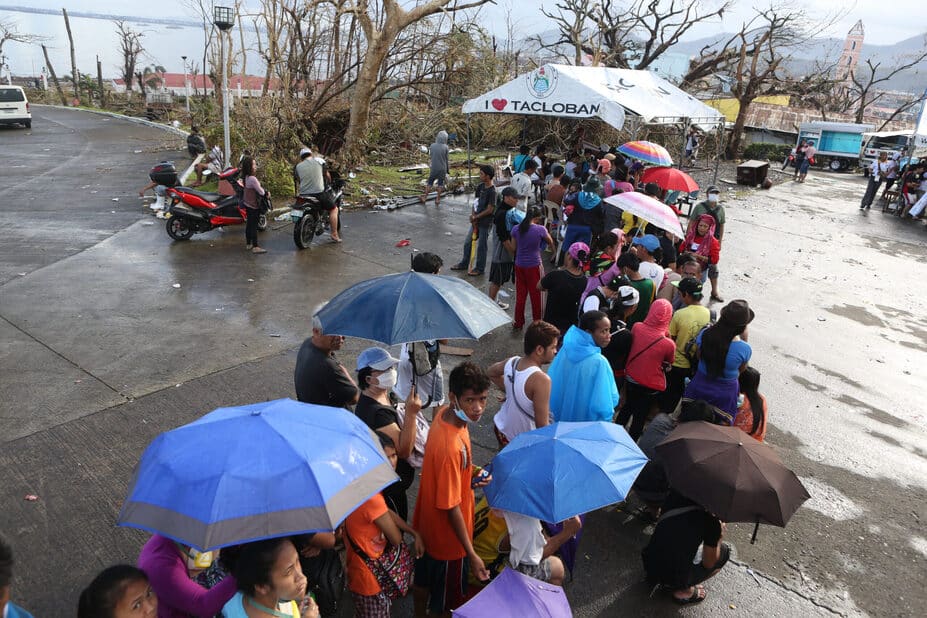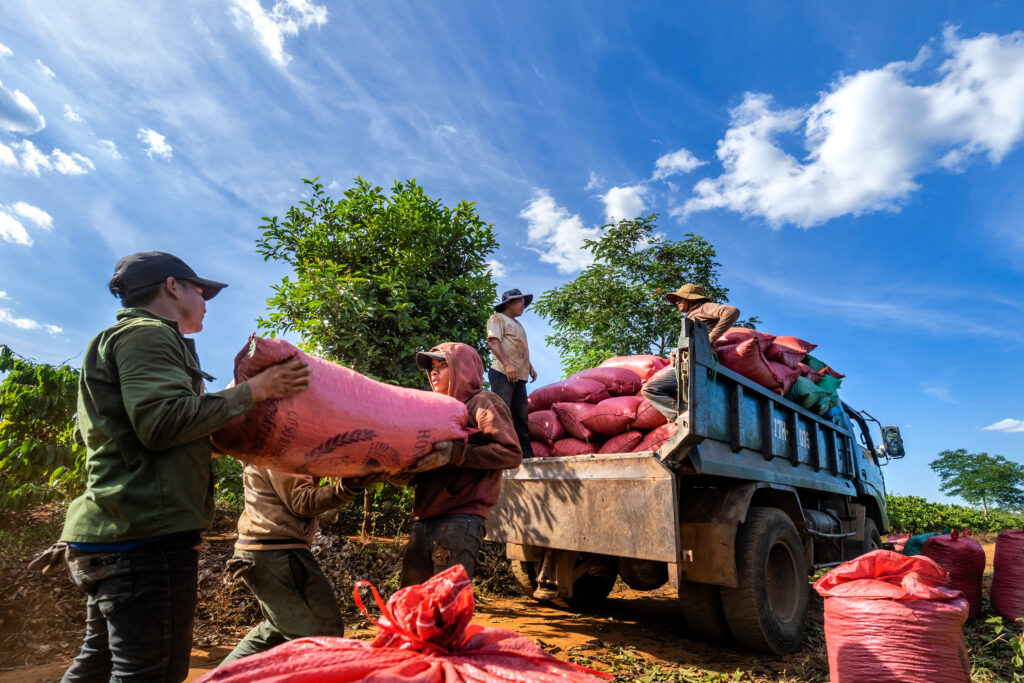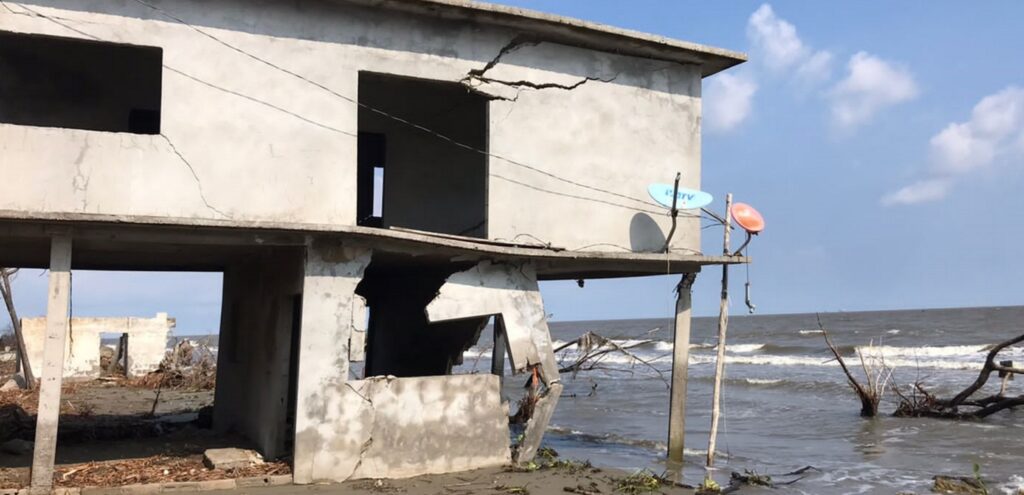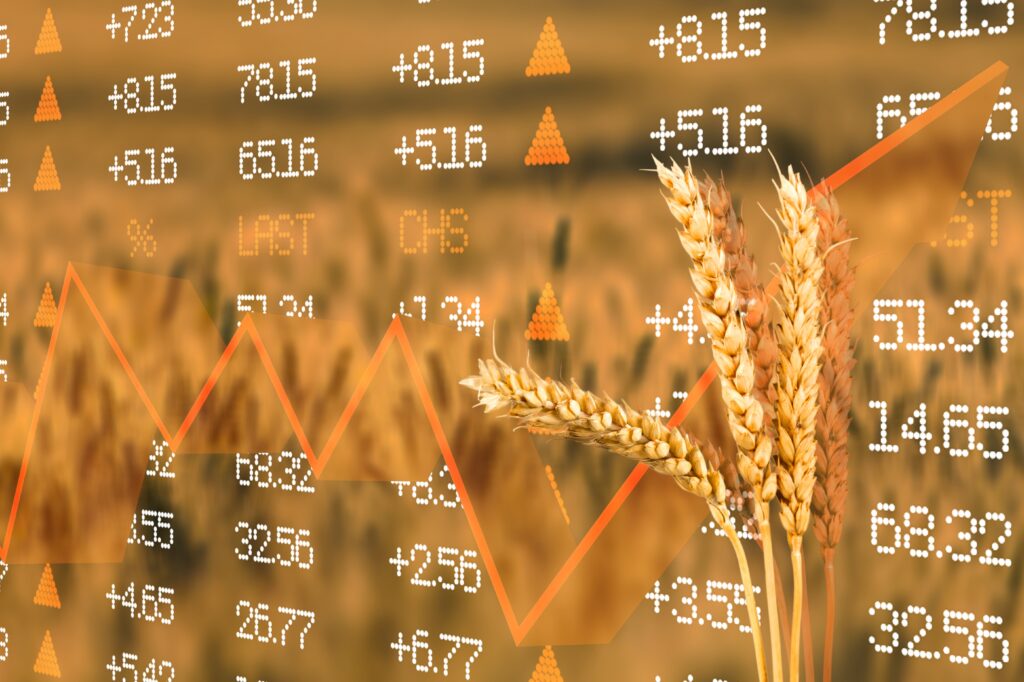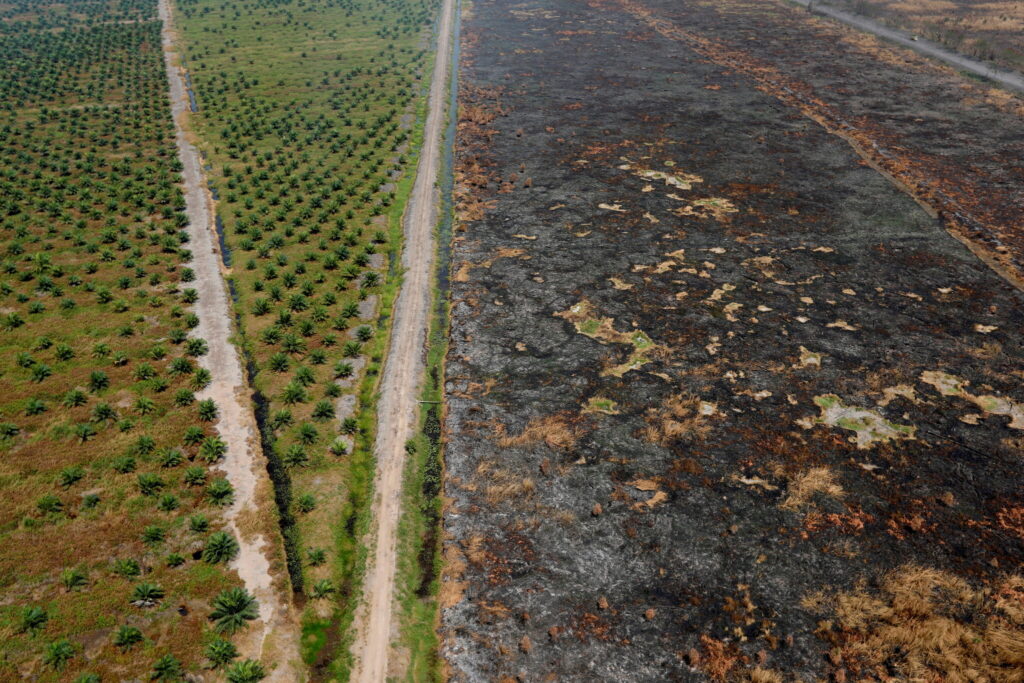Extreme weather events driven by human-caused emissions have drastically increased the frequency of catastrophic floods in China, imperilling regional economies and threatening the stability of the global supply chain.
China has been drenched by extreme floods in each of the last three summers, revealing how vulnerable many of the country’s core industries are to the worst effects of climate change.
In 2022, the manufacturing hub of Guangdong saw its heaviest rainfall in decades, leading to hundreds of thousands of evacuations and forcing factories to shut down production.
This came one year after flash floods drenched central Henan province in July 2021, when close to a year’s worth of heavy rain fell on the capital of Zhengzhou in just three days. Nearly 400 people were killed, including motorists trapped in underground tunnels. Meanwhile, metro passengers found themselves waist-high in floodwaters as they waited for rescuers.
The 2021 floods snarled transit through Zhengzhou, a hub for the movement of goods throughout the country, limiting the movement of everything from coal to pigs headed for slaughterhouses. They also drenched much of Henan’s 2000 square km of farmland, destroying peanut crops and causing regional food prices to rise.
Additionally, in June 2020, southern China saw its worst flash flooding since at least 1988 when torrential rain caused 33 rivers to swell to their highest-ever levels, leaving 219 people dead or missing, destroying 54,000 homes and damaging dozens of cultural sites.
The Economic Toll of China’s Flooding
In each of the past three years, floods caused billions of dollars in damage and hamstrung everything from energy to agriculture. China saw USD 18.4 billion in economic losses due to flooding in 2021, followed by India at USD 3.2 billion. Meanwhile, the warming weather is ensuring this will only get worse.
China could see double the economic losses at 2°C of global warming than it would see at 1.5°C, according to a study published last year in the journal Natural Hazards and Earth System Sciences.
The study projected that, at 1.5°C, China would suffer economic losses of USD 33 billion from “severe floods” concentrated mostly in the country’s south and about USD 70 billion from “mild” floods affecting more of the country. This would include the manufacturing and energy powerhouses in the north and northeast.
At 2°C of global warming, however, both figures would double, while the range of areas vulnerable to medium or high flooding would “gradually expand westward and northward”, the study said.
“The warmer we let the climate get, the greater the losses of dollars will be from flooding,” Simon Allen, an academic associate at the University of Zurich who was not involved in the study, told Carbon Brief in July 2022. “Studies like this are important because policymakers can see what the economic cost of not responding is.”
Why Is China Flooding?
So far, it’s clear that the failure of policymakers to respond has already worsened China’s floods during its rainy seasons.
Extreme flooding in recent years was likely caused in part by the La Niña weather pattern, which warmed the ocean in the western China tropical Pacific and allowed warm air to flow toward southern China. But, experts agree that climate change is making them worse and causing them to occur far more frequently.
Human-caused climate change increased the amount of rain by 7.5% during the 2021 Henan floods, according to research by a team of experts from the Chinese Academy of Sciences and Peking University.
“The figure is an average across Henan — in some places, the increase was 15% to 20%,” said Wang Jun, an associate professor at the Institute of Atmospheric Physics and a study author. “The impact of climate change on the floods cannot be overlooked.”
The Impacts on Global Supply Chains
Similar increases in the severity of floods in China will have cascading effects on the country’s core domestic industries. Weather events like the 2021 Henan floods can kill millions of chickens, pigs and sheep and damage countless crops. They also make arable farmland scarcer, potentially delaying the planned rollout of solar and wind power projects that would use the same land needed to secure China’s food supply.
And extreme weather in China has already slowed the global supply chain, with heatwaves and droughts forcing factories to close, including Shanghai’s Tesla plant last year.
Flooding has also led to millions in losses in China’s rare earth industry, which provides about two-thirds of the world’s rare earth minerals, and its production of fertilizer, of which the world has seen shortages resulting from the war in Ukraine.
And when drought-hit parts of China finally get rain, wilting crops do not magically reappear. Instead, when the weather pendulum violently swings from heavy drought to torrential rain, it can cause floods that wash away rice paddies, chili peppers and other crops that farmers grow to export.
As climate change’s impacts intensify, the economic implications for both China and the globe are set to soar.
Nick Aspinwall
Journalist, New York
Nick Aspinwall is a journalist based in New York. He was previously based in Taipei and Manila. He reports on migration, the environment, labor rights, and the human consequences of geopolitics. Nick’s work has appeared in The Washington Post, The Daily Beast, Vice, Al Jazeera, The Nation, Foreign Policy, Reuters, The New Humanitarian and many more. When he’s not reporting, he’s probably on a diving boat or getting lost in a mountain range.
Nick Aspinwall is a journalist based in New York. He was previously based in Taipei and Manila. He reports on migration, the environment, labor rights, and the human consequences of geopolitics. Nick’s work has appeared in The Washington Post, The Daily Beast, Vice, Al Jazeera, The Nation, Foreign Policy, Reuters, The New Humanitarian and many more. When he’s not reporting, he’s probably on a diving boat or getting lost in a mountain range.

